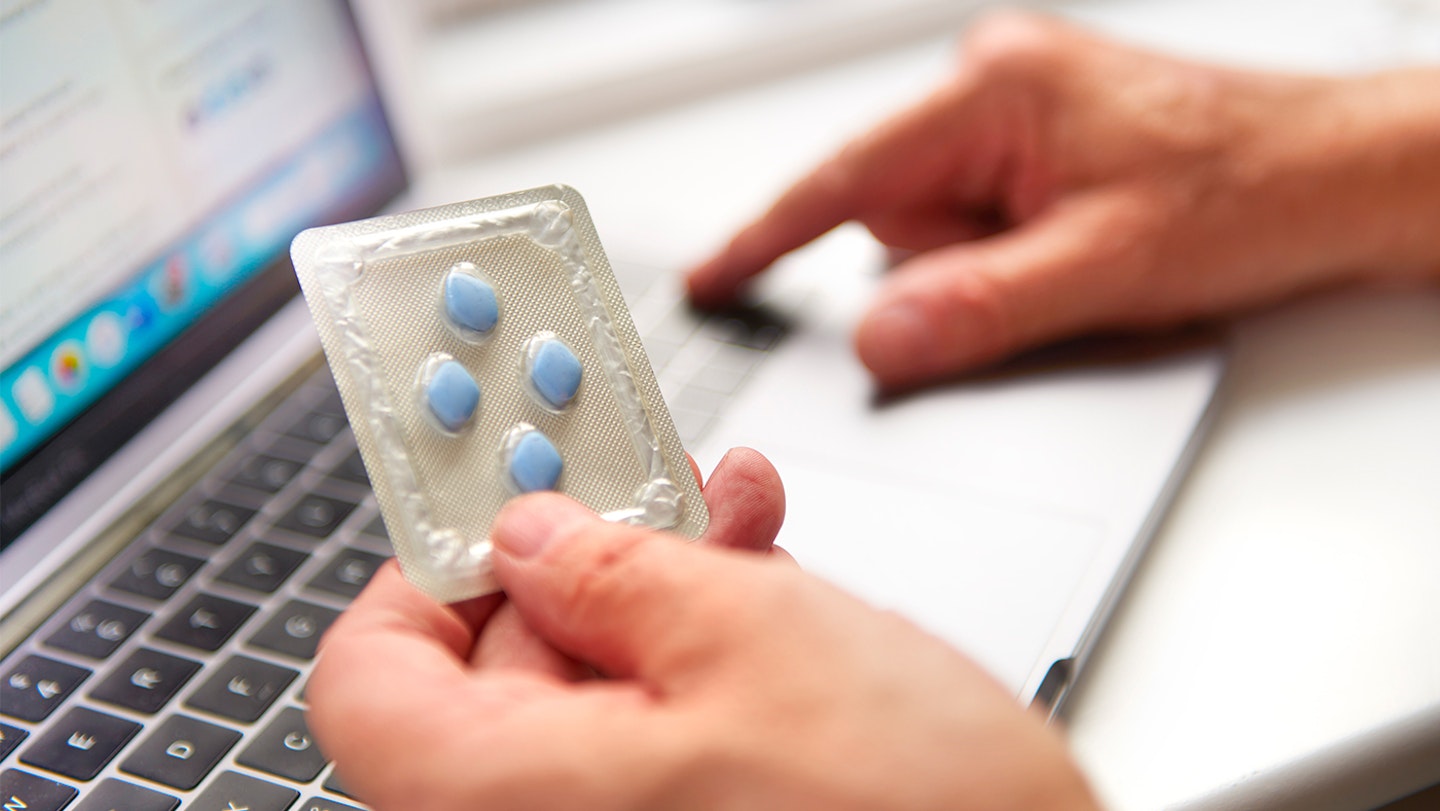While it's not exactly a conversation topic many people enjoy having, erectile dysfunction is a very common condition. That said, if you're trying for a baby, it can feel even more frustrating, especially when you've got the fertile window to contend with.
In this article, we explain exactly what it is including the possible causes and erectile dysfunction treatment.
What is erectile dysfunction?
“Erectile dysfunction is when a man cannot gain or maintain an erection firm enough to complete sexual intercourse," explains Hussain Abdeh, Superintendent Pharmacist for Medicine Direct online pharmacy. It affects most men from time to time, although for some men it can be a permanent problem.
What is the cause of erectile dysfunction?
Being unable to gain or maintain an erection will affect most men from time to time. "In these cases, it is normally caused by drinking too much alcohol or an emotional problem such as anxiety or stress. Exhaustion can also cause ED; if you are very tired you may find it hard to get an erection," Hussain says.
Performance anxiety, which is anxiety around having sex, can also stop some men from achieving an erection.
Certain health conditions can also cause erectile dysfunction. "Obesity, diabetes, heart disease, high cholesterol, and high blood pressure can all increase the risk of erectile dysfunction. People who suffer from illnesses such as Parkinson’s disease and multiple sclerosis are also at a higher risk of ED."
A number of different medicines can also cause erectile dysfunction as a side effect, although this will not affect all men who take them. "You should read the patient information leaflet that comes with your medication to see if you may experience ED as a side effect," Hussain says.
Erectile dysfunction treatment
Medications
A variety of medications are available to aid in the treatment of erectile dysfunction, such as sildenafil (Viagra) or tadalafil (Cialis).
"These medicines work to enhance the effects of nitric oxide, which relaxes the penile muscles. When the muscles are relaxed, blood flow to the penis is increased, which makes it easier to gain a firm erection to complete sexual intercourse. However, for these medicines to be effective, you will still need to be sexually aroused," Hussain explains.

Penis pumps
"This treatment is a hollow tube with a pump that is placed over the penis. The pump removes air from the tube, which creates a vacuum that draws blood into the penis. After this, a tight-fitting ring should be applied to the base of the penis to keep the blood in there. Erections gained by this method are normally sufficient to complete sex. You should speak to your doctor about trying this method," Hussain recommends. Medication is normally the first-line treatment.
Penile implants
This is a surgical procedure that places inflatable or bendable rods into both sides of the penis. Inflatable rods help you to control when you gain an erection, while the bendable rods help to ensure the penis is still flexible.
"This is not a first-line treatment due to the surgical requirement. Medication and pumps will be recommended first. However, penile implants have been shown to have a high satisfaction rate among men who have undergone the procedure.”
What can I do to help with erectile dysfunction?
Studies show that aerobic exercise can help with erectile dysfunction. To reduce this problem, exercise each day, even if you only have time for a 30-minute walk. This will help to get the blood pumping around your body.
"If you are overweight, exercise and cutting down calories may also help to improve your erectile problems. Obesity, high cholesterol, and high blood pressure are all potential causes of ED, so lowering these may produce significant results for your sex life," suggests Hussain.
Getting enough rest is also important, as tiredness can cause erectile dysfunction. Making sure you exercise regularly can help with getting a restful night’s sleep.
"If you are suffering from any mental health problems like stress or anxiety, finding ways to cope with these may also play a big part in relieving ED. For instance, if you are experiencing performance anxiety, you may find it helpful to speak to your partner about it. This will help them to understand how you are feeling, which can relieve a lot of the pressure. Some people also choose to speak to counsellors about how they feel, which can help you to identify ways to relieve the anxiety," says Hussain.
If you are experiencing stress or depression from another area of your life, such as work, talking to your manager about what is troubling you is advised. Finding methods of alleviating this stress can help you to enjoy a more pleasurable and relaxed sex life.

When should I seek help?
Erectile dysfunction can affect all men from time to time. If you find that you have been consistently unable to gain an erection, or if you are unable to complete sexual activity due to losing your erection, you should talk to your doctor. If you're struggling to get pregnant, you should also speak to your GP as it can be a possible sign you can't get pregnant.
"They will be able to help you identify the root cause of your problem. For instance, if you have been under great stress at work, this may be the key factor that is stopping you from keeping an erection," Hussain says.
"They may also run some tests to check the likes of blood pressure and cholesterol levels. If these are too high, they will prescribe you a medicine to bring them down.”
Popular articles to read
30 foods and facts to increase your man’s sperm count naturally
